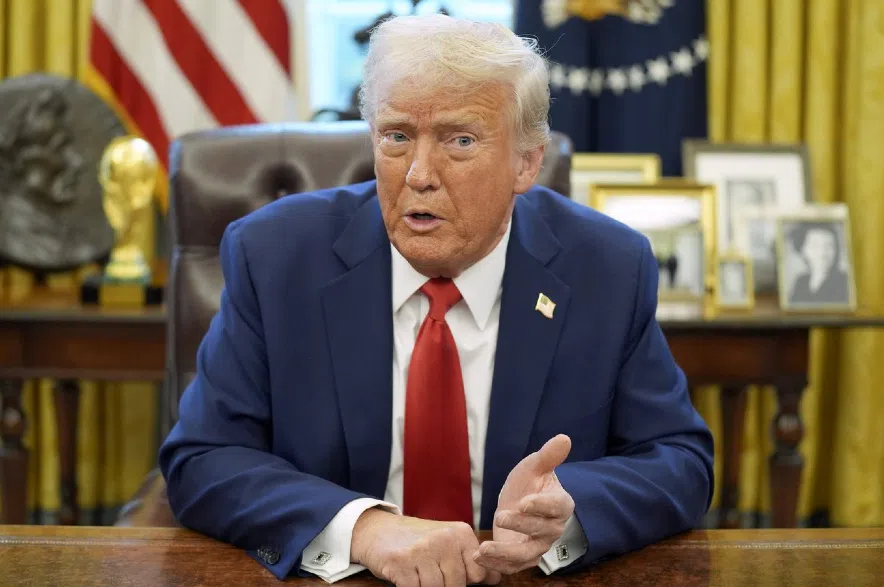Just how credible are U.S. President Donald Trump’s threats to make Canada the 51 state of the United States?
According to Martin Gaal, political studies lecturer at the University of Saskatchewan, it is within the realm of possibility, but it’s hard to see just how committed Trump actually is to following through.
Read more:
- Trump moves with dizzying speed on his to-do list, but there are warning signs
- U.S. tourism groups growing worried about Saskatchewan visitor losses
- ‘We’re going to fight for Canada,’ Chrystia Freeland tells Evan Bray
Gaal said it would require a constitutional amendment for Canada to ever willingly decide to become part of the United States, which is incredibly unlikely.
“Technically, is it possible? Yes. But practically, it’s not even something to be discussed,” he said.
Gaal said it can be difficult to parse just how much of Trump’s threats are just bluster and what his true goals are.
“He’s putting out a lot of smoke,” Gaal said.
“He’s kind of throwing his executive orders all over the place, and even when it comes to … tariffs, he hasn’t imposed them yet. He’s just signed into through executive orders that they will be coming or they do exist. But what that does is hide his fires. With all that smoke out there, we don’t really know what to do.”
Gaal said there is precedent in America’s history for Trump’s threats, referencing the acquisition of Indigenous land and events like the Louisiana Purchase.
“The majority of the U.S. outside of the 13 colonies was in some way purchased or annexed,” he said.
Gaal explained that according to Article Four, Section Three of the U.S. Constitution, “no new state can be formed within the jurisdiction of an existing state or erected within the Jurisdiction of any other State; nor any State be formed by the Junction of two or more States, or Parts of States, without the Consent of the Legislatures of the States concerned as well as of the Congress.”
Gaal speculated that Trump’s aggressive posturing could be linked to ice melting in the Arctic Ocean, affecting the viability of the Northwest Passage.
“The other argument is that Trump is using this annexation language in order to achieve his domestic economic goals, which ties into the tariff side of things,” Gaal said.
“If he can use tariffs to marginalize Canada’s economy, then he would have a stronger argument as to why the U.S. should have greater access to, control of, and even intrusion upon Canada’s sovereignty as a state.
“Much like if you look in domestic politics, how we might try to make certain government programs ineffective in order to move towards privatization, Trump might be doing something similar with tariffs to make Canada’s economy terrible enough that people would welcome more control or guidance by the United States government.”
Gaal said Trump’s aggressive posturing could lead to Canada strengthening economic ties and trade agreements with the European Union, Mexico and even China.
Read more:











